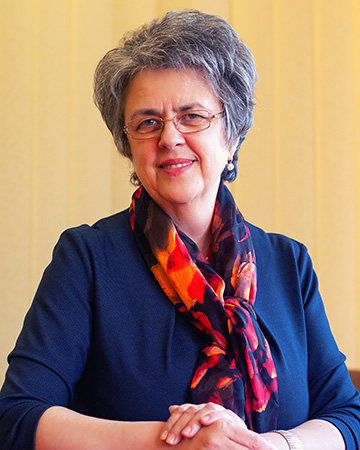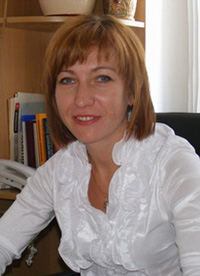|
UDC 331.101.262:005.336.3:332.1; JEL J01, B41, D11
Sadova, U. Ya. & , Stepura, T. M. (2017). Yakist' lyuds'koho potentsialu v metodolohichnykh vymirakh enerhetychnoyi paradyhmy [Human capacity quality in methodological dimensions of energy paradigm]. Rehional'na ekonomika - Regional Economy, 83(1), 90-97. [in Ukrainian].
Sources: 9
Authors
Doctor of Economics, Professor
Head of the Department of social and humanitarian development of the region of the Dolishniy Institute of Regional Research of NAS of Ukraine
Contacts:  sadlu2004@gmail.com, sadlu2004@gmail.com,  (032)297-3891 (032)297-3891
Webpages:   

Ph.D. of Economics, Associate Professor
Head of the Department of economics and entrepreneurship of the Lviv Branch of European University
Contacts:  tetyana.stepura@gmail.com tetyana.stepura@gmail.com
Webpages: 
ResumeThe article attempts to build methodology of the regional human potential quality. The basic principles of social and regional economics and also the theory of consumption and energy paradigm are the theoretical basis of research. It is indicated that the human potential quality as a set of features of not used reserves of human resources should be studied by using a systematic and structured approach. This necessitates a separation of personal and active sections of the regional human potential quality, and in the personal context – the selection of separate levels of sociogenesis. It is determined that such levels are the human body, individuality, personality. Quality is formed on each of them and each next qualitative state of the system occurs in case when the processes on all levels are synchronized. It is emphasized that geostructural approach to the study of the regional human potential quality determines the need to consider this category under the consition of systematic involvement in its formation environment. This approach allows researchers to focus on regional features of setting energy in the human body, and to establish patterns of energy redistribution in the economic activity process and its concentration in the form of economic benefits. It is indicated that all the cycles of human development are accompanied by energy transfer processes. Within the personal approach the extensive sources concern the inflow of energy from outside, and intensive – the efficiency of its use. The inflow of energy from outside on the level of human body is provided by biological processes, where the main one is nutrition. The role of nutrition in the complex process of regional human potential quality formation within the energy paradigm development is proved in the article. In terms of apractice the importance of a balanced diet in shaping health as one of the key components of regional human potential quality is proved. The concept of energy balanced nutrition includes not only its composition in terms of nutrients and other components, but also compliance of diet with the way of person’s life, activity, and the content and type of work. It is established that the diet of the population of Ukraine in terms of its energy balance does not meet the needs of the human body to ensure the health, efficiency, physical activity and work, and requires complex regulation based on regional features. Public policy measures should be aimed primarily at growth of income in Ukraine. However, the development of state standards in food sector should concern not only the settlement of the balance between the energy content of the diet and the nature of work, but also regionalization of standards values, its implementation in society’s life practice.
Keywords:human potential quality, energy paradigm, the theory of consumption, personal approach, applicative approach, energy transfer, the energy content of the nutriton, balanced nutrition
References- Podolynskiy, S. (1880). Trud cheloveka i ego otnoshenie k yenergii [The labor of a person and its relationship with an energy]. [in Ukrainian].
- Ezzell, K. (2003). Kultura chasu [Clocking Cultures]. Svit nauky – Science’s world (Translated from Scientific American), 3-4, 54. [in Ukrainian].
- Zlupko, S. M. (2003). Osnovy ekohomolohiyi [Foundations of the eco-homology]. Lviv: Ivan Franko National University of Lviv. [in Ukrainian].
- Karpenko, P. O. (Ed.), Peresichna, S. M., Hryshchenko, I. M., & Melnychuk, N. O. (2011). Osnovy ratsionalʹnoho i likuvalʹnoho kharchuvannya [Fundamentals of rational and clinical nutrition]. Kyiv: Kyiv National University of Trade and Economics. [in Ukrainian].
- Osnovnyy obmin [Basic exchange] (2017). Website Pharmaceutical Encyclopedia. Retrieved from http://www.pharmencyclopedia.com.ua/article/3135/osnovnij-obmin
- Ministry of Healthcare of Ukraine (1999). Pro zatverdzhennya Norm fiziolohichnykh potreb naselennya Ukrayiny v osnovnykh kharchovykh rechovynakh ta enerhiyi [On approval of the Norms of physiological needs of the population of Ukraine in the nutrients and energy] (Order 272 on 1999, November 18). Retrieved from http://zakon3.rada.gov.ua/laws/show/z0834-99 [in Ukrainian].
- State Statistics Service of Ukraine (2016). Balansy ta spozhyvannya osnovnykh produktiv kharchuvannya naselennyam Ukrayiny za 2015 rik [Balances and consumption of the basic foodstuffs by the population of Ukraine in 2015]. Kyiv. [in Ukrainian].
- State Statistics Service of Ukraine (2016). Vytraty i resursy domohospodarstv Ukrayiny u 2015 rotsi (za danymy vybirkovoho obstezhennya umov zhyttya domohospodarstv Ukrayiny) [Expenditure and resources of households of Ukraine (according to the sample survey of living conditions of the households of Ukraine)]. Kyiv. Retrieved from: http://ukrstat.org/uk/druk/publicat/kat_u/publdomogosp_u.htm [in Ukrainian].
- U 2013 rotsi sered yevropeysʹkykh krayin v Ukrayini naybilʹshe vytratyly na produkty kharchuvannya, a naymenshe na kulʹturu [In 2013 among European countries Ukraine had the biggest expenses on food and the least one’s on culture]. Website of Information-Analytical Center Infolight. Retrieved from http://infolight.org.ua/content/u-2013-roci-sered-ievropeyskih-krayin-v-ukrayini-naybilshe-vitratili-na-produkti-harchuvannya-naymenshe-na-kulturu [in Ukrainian].
|